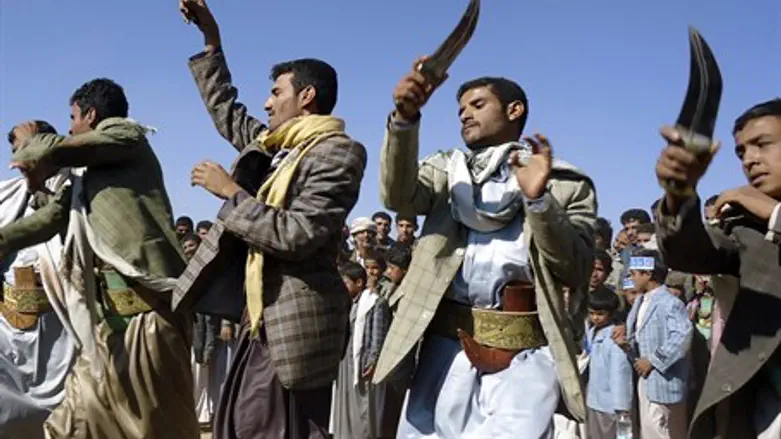
Operation Decisive Force has taken Middle East observers by surprise. Only a week ago there were few indications Saudi Arabia was planning any war at all. Now, there are reports the Saudis will lead a ground invasion “within days” to bring down the Houthis.
When Arutz Sheva last spoke to Professor Yiftah Shapir of the Institute of National Security Studies, he was uncertain of how quickly Saudi Arabia might be willing to launch a ground offensive. With developments happening at a quick pace, Arutz Sheva asked if Saudi Arabia had any particular way to avoid what could become its own quagmire.
“If Saudi Arabia enters Yemen on the ground – my guess is that yes, they are in for a long lasting quagmire. I guess they know it. (Unlike the Americans – they were born and raised in the Middle East).”
History is behind that guess. Between 1962 and 1970, Egypt deployed 70,000 troops to Yemen to support a coup against the king. It failed, mostly because of Saudi intervention at the time. 10,000 Egyptians were killed during that war, and now the Saudis are the ones leading the way.
Saudi Arabia also conducted a limited incursion against the Houthis in 2009 that left over 100 Saudi troops dead and 470 wounded. The Houthis even managed to cross the Saudi border. That experience was limited, but this year’s operation is far more extensive against a Houthi army speculated to have a possible depth of 100,000 fighters. Even if those numbers are far less, Iranian or Hezbollah military advisers could help organize a strong anti-Saudi insurgency .
The pace of developments has made the ongoing Arab League summit in Sharm al-Sheikh far more interesting as well. Over the course of the summit, Egyptian President Abdel Fattah Al-Sisi declared there would be the formation of a United Arab Force (UAF). While his words implied this would be a military force that would be long-lasting, Shapir does not see the formality of a UAF extending beyond the current operation in Yemen.
“As for the Unified Arab Army – I don't think it will ever exist – other than token units for propaganda purposes.”
In Shapir’s opinion, the Arab World’s track record indicates it would not be able to sustain such an organization.
“Just look not at the Arab world as a whole, or the Sunni world as a whole – look at the six members of the GCC. Have they ever managed to set up a real unified force? They have been talking of cooperation for the past two decades. Nothing came out (of it) because the mistrust between them was high.”
Mistrust might still be high. There is also the issue of where else a UAF would be applicable. In Libya, there are different groups of patrons supporting opposite sides of the civil war there. In Syria, it is far less clear that countries in the current Yemen coalition would be willing to contribute forces to a much more difficult mission against a far more equipped enemy (the Syrian government). Even ISIS might produce some major disagreements.
When asked if a Saudi-led ground invasion could produce the types of pressures at home other countries see – where high numbers of casualties turns public support against the war – Shapir could not see that as happening.
“The number of casualties is not a significant factor,” says Shapir. “I believe they will not do much on the ground; the expected casualties will be Yemeni civilians, in what is termed as ‘collateral damage.’”
Besides public pressure, Shapir does not see much empathy for those casualties coming from Riyadh once – or if – they actually do go in. Groups like the International Committee for the Red Cross and Human Rights Watch have tried to head the Saudis off at the pass as it were, expressing “concern” for civilian casualties on the very first day of the operation.
“The Saudis won't care… and they are not going to face any Goldstone in the aftermath.”